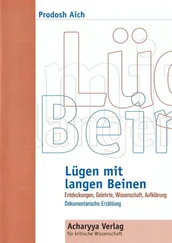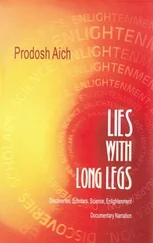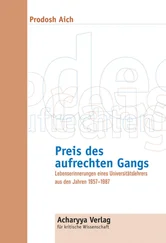Whatever else Max Müllernarrates in his autobiography regarding Friedrich Maximilian Müller’s Sanskrit knowledge and love for Sanskrit does not correspond to facts. Moreover, Max Müllercontradicts himself. We recall:
“I found little that could rouse my enthusiasm for Greek and Latin literature, and I always required a dose of that to make me work hard. Everything seemed to me to have been done, and there was no virgin soil left to the plough, no ruins on which to try one’s own spade.”
We recall also: “ I began to feel that I must know something special, something that no other philosopher knew, and that induced me to learn Sanskrit, Arabic and Persian. ”
All this does not sound like a lovefor the Sanskrit language. Does it? We are caught up again with the cute story presented by Max Müllerregarding Friedrich Maximilian Müller’s “first love, Sanskrit and the rest” (p. 109-111). Friedrich Maximiliancould not have “remained true to (his) first love, Sanskrit and the rest” before he ended his third semester for the simple reason that Hermann Brockhausdealt with a Sanskrit text in Summer 1842 only. And whatever Friedrich Maximiliancould know about “Sanskrit and the rest” , it has come to him through Hermann Brockhaus.
In the chapter “University” in “My Autobiography” by Max Müllerone can read lectures delivered by Max Mülleron languages, on Sanskrit, on etymology of words, on ancient gods, on Aryans, and what not. Obviously Friedrich Maximiliancould have known nothing of all these from Hermann Brockhaus. The reason is rather simple. We apologise for looking a little ahead. Hermann Brockhaushimself could not have known all these topics, as we shall know in a while.
We get into the biography of Hermann Brockhausto trace when, where, from whom and for how long he had learnt his Sanskrit language. He was born in 1806 in Amsterdam. He studied “Oriental languages” at the Universities of Leipzig, Göttingen and Bonn. The Universities of Leipzig and Göttingen did not teach the Sanskrit language at that time. In Bonn he was a student of August Wilhelm von Schlegel(1767–1835), who was holding a professorship for European Literature. Later he was celebrated as the founder of “German Indology”, who is also said to have known the Sanskrit language. Therefore, we shall have to apply the same method as we applied in the previous case. Whatever Hermann Brockhauscould know about “Sanskrit and the rest” , it came to him through August Wilhelm von Schlegelonly. We extend our search to check now the ability of teaching the Sanskrit language of Hermann Brockaus’s teacher. There is no other way out.
August Wilhelm von Schlegelis the elder of the Schlegel brothers. He came to Paris while Franz Boppwas learning “Sanskrit” there. It is handed down that Franz Boppand August Wilhelm von Schlegellearnt the Sanskrit language together in Paris. We look now into his vita.
August Wilhelm von Schlegelis educated at the Hannover Gymnasium and studies philology at the Göttingen University. As a philologist, he gets engaged in an “ardent study of Dante, Petrarchand Shakespeare”. From 1791 to 1795, he is tutor in a Dutch banker's family at Amsterdam. In 1796, soon after his return to Germany, he settles down in Jena, following an invitation of the German poet Friedrich Schiller. He is now 29 years old.
In Jena, he makes critical contributions to Schiller's journal for literature “Horen”. He translates also from Dante and Shakespeare. These works establish his literary reputation and gain for him an “extraordinary professorship” at the University of Jena in 1798 at the age of 31. With his younger brother Friedrich von Schlegel (1772–1829), he founds Athenaeum , the organ of the Romantic School of literature in Germany.
After divorcing his wife Karoline, in 1804, he is now 37, he travels with Madame de Staëlas adviserin her literary work in France, Germany, Italy and other countries and as tutorto her sons as well. Until he is 46 years old, he remains adviser to her and tutor to her sons. From 1813 to 1817, he acts as secretary of the Crown Prince of Sweden, through whose influence his family gets back the title “ vonSchlegel”. In 1817, he is 50 years old.
He joins again the household of Mme. de Staëlas advisor until her death in the same year. Thereafter he gets a professorship for Literature at the University of Bonn in 1818, and during the remainder of his life, he is occupied chiefly with oriental studies. So it is said. He happens also to be the founder of a “special printing office for Sanskrit” at Bonn. So it is handed down. We assume that he is credited to have created the first facilities in Germany to print texts in Sanskrit letters. We take liberty to look ahead a little in our documentary narration and assert here that printing facilities of Sanskrit texts were available in Kolkata with the British Kingdom represented by the East India Company even before the end of the 18th century. In addition, August Wilhelm von Schlegelwas proficient in English.
As mentioned, it is handed down that Franz Boppguided August Wilhelm von Schlegelto the study of Sanskrit in Paris. We recall what we have read in the autobiography of Max Müller, p. 122: “Here my Collegien Buch breaks off, the fact being that I was preparing to go to Berlin to hear the lectures of Bopp and Schelling.” This “ Bopp” is Franz Boppwho went to Paris to learn “Sanskrit” in 1812.
Why to Paris? For how long does Franz Boppstay in Paris? From whom does he learn Sanskrit and when does he guide August Wilhelm von Schlegelto the study of the Sanskrit language? It must have been before August Wilhelm von Schlegelstarts acting as the secretary of the crown prince of Sweden in 1813. So, August Wilhelm von Schlegelcould have learnt the Sanskrit language in Paris together with Franz Boppat best for monthsonly, between 1812 and 1813. Thereafter he had no opportunity to learn Sanskrit. Now we shall have to see how and how much Sanskrit Franz Boppcould have learnt before 1813 ended and then evaluate the quality of his guidance for August Wilhelm von Schlegel. In addition, we have to ascertain to whom Franz Boppcould have guided August Wilhelm von Schlegelto learn the Sanskrit language. Who was the teacher in Paris? Therefore, we are compelled to focus now on Franz Bopp.
*****
For a few years (1808–1814) Aschaffenburg was seat of a university, though not with all faculties, but with history, philology and philosophy. At the age of eighteen, Franz Bopptook up the two years’ “philology course” in 1808 at the Karls–University in Aschaffenburg. This was mainly a study of languages: the Greek, Latin, English, French and Italian. He was said to have been good in his studies, but not good enough. Though at the end of this two years’ “philology course” in 1810 he stood once first and once second in the class, he was unable to earn a “doctor’s degree”. He stood twice as “Defendant” (defender of his dissertation), but the doctor’s degree in philosophy was denied to him finally, unlike the later bishop of Speyer and Augsburg, Richarz, as it is documented. Does it sound like the beginning of an outstanding “scholar”?
Читать дальше












